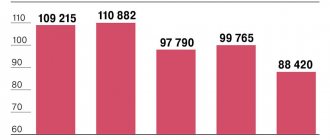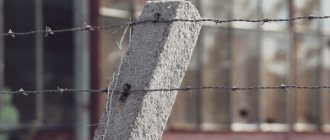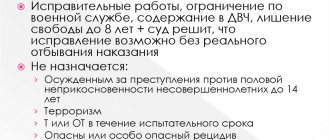Criminal liability of minors for crimes in the field of drug trafficking
Criminal liability of minors for crimes in the field of drug trafficking
Criminal liability is the most serious type of legal liability that occurs for committing crimes that are punished most severely, including long-term imprisonment. However, minors have a number of characteristics compared to other persons (minor age, unformed psyche, etc.), and special rules for criminal prosecution and sentencing apply to them.
It should be noted that from the point of view of criminal law, only a person who was 14 at the time of committing a crime, but not 18 years old, is called a minor (Article 87 of the Criminal Code of Russia). The minimum age of a minor who can be held criminally liable is determined by Art. 20 of the Criminal Code of Russia, which provides that a person who has reached the age of 16 at the time of the crime is subject to criminal liability for almost all crimes, and for the crimes listed in Part 2 of Art. 20 of the Code (for example, murder, intentional infliction of grievous bodily harm, theft, robbery) - from 14 years of age.
Currently, relatively common crimes among minors include theft, robbery, robbery, as well as crimes related to illicit trafficking in narcotic drugs and psychotropic substances.
Criminal liability for crimes related to illicit trafficking in narcotic drugs and psychotropic substances is provided for in Articles 228, 228.1, 228.3, 228.4 of the Criminal Code of Russia.
In addition, for the consumption of narcotic drugs and psychotropic substances, minors from the age of 16 are subject to administrative liability under Art. 6.9, part 2 art. 20.20 of the Code of Administrative Offenses of the Russian Federation, and if the consumer is a person under 16 years of age, administrative liability is established in relation to his parents or other legal representatives under Art. 20.22 Code of Administrative Offenses of the Russian Federation.
Crimes related to the illicit trafficking of narcotic drugs and psychotropic substances are included in the category of crimes against public health and public morality (Chapter 25 of the Criminal Code of Russia).
Article 228 of the Criminal Code of Russia for the illegal acquisition, storage, transportation without the purpose of selling narcotic drugs, psychotropic substances or their analogues provides for liability in the form of a fine of up to 40 thousand rubles, compulsory labor for up to 480 hours, correctional labor for up to two years, limitation freedom or imprisonment - up to 3 years.
Article 228.1 of the Criminal Code of Russia for the illegal production, sale or transfer of narcotic drugs, psychotropic substances or their analogues provides for liability in the form of imprisonment for a term of 4 to 8 years with restriction of freedom for a term of up to 1 year.
At the same time, the severity of punishment under these articles increases if the illegal acquisition, storage or sale of narcotic drugs, psychotropic substances or their analogues is carried out in a significant, large and especially large amount, using the media or electronic or information and telecommunication networks (including the "Internet").
When assigning punishment to a minor, the conditions of his life and upbringing, the level of mental development, other personality characteristics, the influence of the imposed punishment on the correction of the convicted person and on the living conditions of his family are taken into account (Article 60 of the Criminal Code of Russia).
Crimes related to illicit trafficking in narcotic drugs and psychotropic substances are serious crimes. In this regard, minors who have committed such a serious crime under the age of 16 may be sentenced to up to 6 years in prison.
Full protection of minors from committing crimes related to the illicit trafficking of narcotic drugs and psychotropic substances must be organized in accordance with the provisions of the Federal Law of 01/08/1998 No. 3-FZ “On Narcotic Drugs and Psychotropic Substances”, Federal Law of 06/24/1999 No. 120-FZ “On the fundamentals of the system for preventing neglect and delinquency of minors”, which determined the mechanism for carrying out preventive work with minors and the functions of the bodies and institutions (organizations) of the prevention system that implement it.”
Senior assistant prosecutor of the city of Chelyabinsk T.A. Safronova
Possession of drugs on an especially large scale, Part 3 of Art. 228 of the Criminal Code of the Russian Federation
The standard situation is that the consumer decided to consume it, acquired the coordinates of the treasure and went to the forested area to get it.
He was noticed by police patrol sergeants and after 300 meters of pursuit he was detained. During the personal search, 6 stamps and several bags of powder were seized. The research certificate included a part of the powder that turned out to be amphetamine weighing 1.86 grams; the remaining objects were not examined until the examination. As often happens, a case was opened under Part 3 of Art. just in case. 30 p "g" part 4 tbsp. 228.1 of the Criminal Code of the Russian Federation, attempted sale of drugs on a large scale.
The lawyer got involved in the case almost immediately after the arrest, which made it possible to quickly “beat off” the attempted sale and ensure that the principal was placed under subscription and not in a pre-trial detention center. We began to wait for the examination.
After reviewing the examination, the lawyer realized that it had again “arrived” in the form of a particularly large amount of the drug:
Six seized stamps weighing 0.243 grams containing LSD were enough for a criminal case under Part 3 of Art. 228 of the Criminal Code of the Russian Federation, possession of drugs on an especially large scale.
The amphetamine, weighing 4.67 grams, only carried a large size. The investigation was satisfied with this, naturally there was no lawyer, and he began to look for a way out of the situation that had arisen with a particularly large amount of LSD.
Protection under 228 of the Criminal Code of the Russian Federation
Despite the positive practice of assigning a suspended sentence under Part 2 of Art. 228 of the Criminal Code of the Russian Federation, there are still enough cases when a real sentence is given. Considering these confessions, there was not much choice of tactics left. Therefore, the defense strategy was outlined as follows: a special procedure, full admission of guilt, assistance in solving the crime, positive characteristics, the presence of dependents. For my client, the main thing was not to go to jail. I set myself an additional task: to achieve a verdict without imposing a fine.
During the trial, the idea of the advisability of correcting my client without isolation from society was convincingly conveyed to the court, professional and personal characteristics were presented in the best possible way, and the presence of several dependents was proven. The court heard and accepted our position, imposing a suspended sentence of 3 years in prison. The presence of dependents and documented low income convinced the judge that imposing a fine would aggravate the already difficult financial situation of the defendant’s family. No one appealed the verdict, since the result satisfied all participants in the process.
Added: 21:35 03/29/2021
Here is a relatively recent verdict from 2021, where the same result was achieved thanks to competent work during the investigation and in court.
What can a lawyer do for his client?
Relatives of the accused often try to defend him on their own, collecting numerous certificates and characteristics in the hope that they will be taken into account when sentencing. However, they are not enough to prove to the court the possibility of reforming the criminal without real punishment.
A lawyer evaluates the chances of a convicted person receiving a suspended sentence for drugs based on experience and practice, and in each specific case chooses the most promising ways to achieve the desired result. Most often, judges are cooperative in the presence of the following mitigating circumstances:
- the crime was committed for the first time, there is no criminal record;
- admission of guilt, sincere repentance;
- positive characteristics;
- youth or, on the contrary, old age;
- presence of children and other dependents.
In themselves, these circumstances do not play a key role in making a decision, just like the personality of the convicted person. Sometimes the court comes to the conclusion that even all of them taken together do not guarantee that he is able to reform while free. It is necessary to prove the insignificant social danger of the crime and the inappropriateness of keeping the convicted person in a colony. In my archive you can find various examples of drug cases (assignment of a lenient sentence, refusal to arrest for drugs, dismissal of a criminal case).
If you want to get a suspended sentence for drugs for yourself, your child or your spouse or are counting on its deferment for the purpose of treatment, you can always get help at the address: Nevsky Prospekt, 153. Lawyer Botsman Andrei Nikolaevich effectively defends such cases, which contributes to many years of experience in the Internal Affairs Directorate, OBEP and the Main Department of Justice of St. Petersburg.







